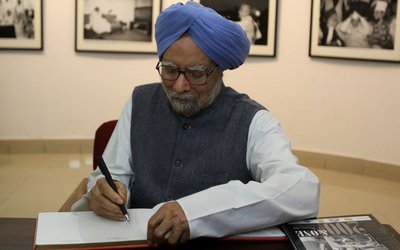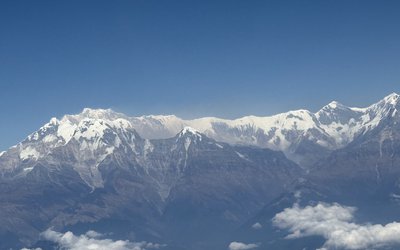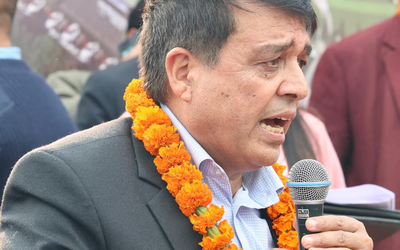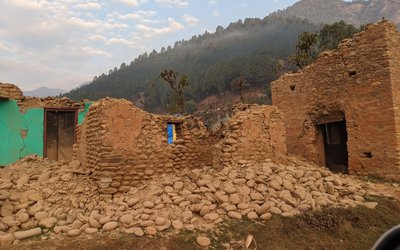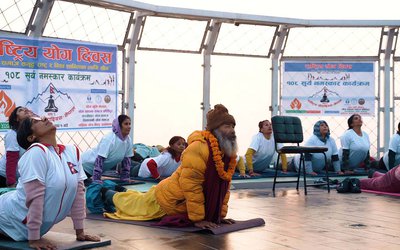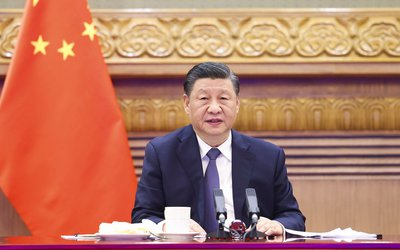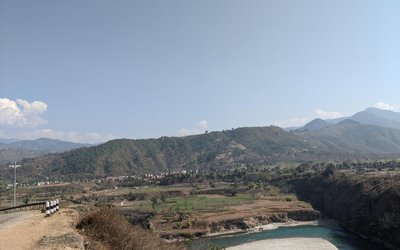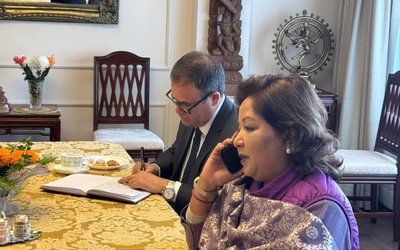
As you know Congress party has had its worst electoral defeats in the previous Loksabha General Elections held in 2014 and 2019 respectively. The main reason for the defeat is the lack of efficient leaders who could take a strong stand against BJP. The party has failed to bring the best leaders to the forefront also with respect to electoral candidatures. The best candidates were chosen only in Kerala and maybe in Punjab also. This improper selection of inefficient candidates has resulted in the party attaining less than 10% of the total seats in the Loksabha. It hurts to realize that the party with the best ideology in India despite losing their grandeur, fails to act with wisdom. The party has lost the confidence and support of the common people. If this situation continues it will be difficult for the grand old party to regain its old stature.
There are many reasons for the downfall of this party. The party has shifted its focus on family politics rather than bringing capable leaders to the top front. There have been many incidents where favorites of certain leaders have taken major responsibilities despite the presence of efficient members. Many incidents stand testimony to this attitude. The party believes that they can continue to be a political party only if someone from the Nehru family is at its top. This is the reason why everyone is asking Rahul Gandhi to be the next President of the party. But the stand taken by Rahul Gandhi now that there should be someone other than from the Nehru family to lead this political outfit and that he doesn't want to be the President is a correct decision. Also, senior leaders want their children to come as their successors. P.Chidambaram, Kamal Nath and Ashok Gehlot insisted that their sons contest in the Loksabha. Even though Karthi Chidambaram and Nakul Nath won the elections, Gehlot’s son Vaibhav Gehlot fared poorly in the elections. Ashok Gehlot being the Chief Minister of the party failed to campaign for the other candidates of the party while looking for only his son’s victory. This was the case with Kamal Nath also, but luckily his son won there.
The doubts about Rahul Gandhi’s inefficiency is also a question before the common people. A leader is someone who leads a group of people and also takes the blame for any loss that occurs. But Rahul Gandhi has failed in that aspect. After the loss in Loksabha in 2019, Rahul Gandhi imposed a month-long exile from Politics. A leader should never do such a thing. If he was a true leader, he would have accepted the mistake and tried to rectify it. He would have done an inquiry on the reasons behind the loss. The situation then was that Congress would come to power. This was a nationwide trend in politics at that time. But even having such a favorable trend Congress could not win the election or at least secure a 10% seat in the Lok Sabha. 6 months before the Loksabha elections, the Congress party had won in Rajasthan, Madhya Pradesh and Chhattisgarh. But during the Loksabha elections, they fared poorly in those states even. There could be no political reasons. But as some people say this may be due to errors in EVM but Rahul Gandhi never took a stand against that and he never initiated an inquiry into the reason behind the party’s failure in the elections. The reason Rahul Gandhi said when he stepped down was that he was alone in leading the party and that the senior leaders never helped him in his stand against Narendra Modi. But if that was the reason he could have removed those leaders from their positions. But he never did that and just kept on criticizing them. The exile made the party workers feel insecure in the party as their leader had gone for an exile without taking any measures against their defeat in the elections.
After the General Elections 2019, the initial to lead the party in Lok Sabha was Shri. Shashi Tharoor. But later due to stiff opposition from the so-called 'Old Guard', the decision was revised and AdhirRanjan Chaudhary was picked. But later on, his speech in the Loksabha was criticized by the party itself. It was an insensible decision by the party, since the acceptance that Dr. Shashi Tharoor had within the public and among the international leaders was unparalleled by anybody else in the Indian National Congress. Replacing him with a lesser-known Adhir Ranjan Chowdhury was a big mistake.
The denial of the youth facto is another issue that the Congress party now faces. The youth are required for the petty party errands and other difficult tasks. But when it comes to governance they are being sidelined and older leaders are preferred. That was the case in Rajasthan and Madhya Pradesh.
In Rajasthan, it was Sachin Pilot who was made PCC President 4 years before the elections there. He worked hard, nurtured the party and made the Congress win the elections. But then Ashok Gehlot came from nowhere and wanted to be the CM that was accepted, meanwhile, Sachin was made the Deputy Chief Minister. Even as Deputy CM he was not taken into consideration by Gehlot. This made him revolt against the Congress Party.
In Madhya Pradesh, Jyothiraditya Scindia and Kamal Nath were frontrunners to the post of CM. Kamal Nath was accepted by the party due to the pressure from the 'Old Guard'. But since he also held the post of PCC President, Scindia asked for the PCC Presidentship. Not only was he denied the PCC President's post but was also denied a Rajya Sabha seat from Madhya Pradesh. There were two candidates who could've won from MP at that time. One seat was given to Digvijay Singh. The other was not given to Scindia due to stiff opposition from the 'Old Guard' especially Kamal Nath. This shows how Congress dealt with the youth of the party. If this goes on, many youth leaders as well as others will leave this party.
Speaking of the importance of youth in the party, let us look into the past of this part. Rajiv and Sanjay Gandhi stressed on the importance of youth in the party. It was during Rajiv's era that Ghulam Nabi Asad, Ambika Soni and other major senior leaders were appointed AICC office bearers and other top posts in the party. But today these leaders strongly raise their disapproval against youth holding important posts in the party. When Sachin Pilot had criticized the party recently, party senior leaders told that Sachin was given many higher posts at very young age itself including that of Union Minister at the age of 34 and that no one else was given such acceptance in the party’s history. But in 1982, Ghulam Nabi Asad who was then 33 was made the Union Minister. The youth during the old times was the backbone of the Congress Party. During the Sanjay Gandhi era, he strengthened the youth. After the Emergency period and the rule of the Janata Party, Congress came back to power in 1980 under Indira Gandhi. The main factor for the victory was the youth who had won a number of seats who were coordinated by Sanjay Gandhi. Later on, after Rajiv Gandhi took over he also made it important to look into the affairs of the youth of the party and stressed on strengthening them. During the elections that he won, the youth had an important role.
The party has also ceased to look into the frontal organizations. Mahila Congress and INTUC need to be revamped immediately. The elections which were done in the Youth Congress and NSUI by Rahul Gandhi was a good initiative. But that has to be done continuously, and every person had to be monitored on regular basis. This initiative should be implemented in the Mahila Congress, INTUC, and other organizations. Also old leaders should be removed from higher posts.
The next issue is the presence of groups in the party. If a nominee of one group is given a seat, the other group members work for the loss of that candidate. This happens vice-versa also for the other group candidate. And if someone takes a neutral stand, both the groups work for his loss. This is done to ensure that their group will have a majority share of the seats when the results arrive. But what happens is that the number of seats that can be won, gets reduced to more than one-third of what could have been won if they had worked together for the welfare of the party and its candidates. For example, taking the state of Kerala, my home state, Congress barely managed to win 22 seats out of 140 seats in assembly elections in 2016 where they could have easily managed to win more than 50 seats if they had forgotten their group rivalry and open criticisms. Then UDF would have ruled the state rather than LDF. ‘United we Stand, Divided we Fall’ is what comes to my mind as I reflect upon that loss. The freedom given by the party gives to the cadres is one of the major reasons. Indian National Congress is a democratic party. But by democratic, it doesn't mean one can criticize a member openly in front of the people or media for his own petty needs. Internal democracy should be there at the party. Any issues pertaining to one member should be raised and voiced in a party committee meeting rather than in public. This action barely sees the light as the party doesn't take any action against the members who resort to public insult. This ignorance of party integrity kills mutual respect within party members. Disciplinary actions if taken on the other hand could put an end to the atrocities committed against party unity. This groupism is effectively seen in Kerala where the party workers have 2 groups namely A faction and I faction led by group managers Oommen Chandy and Ramesh Chennithala respectively. In recent Loksabha elections, Jyothiraditya Scindia lost because of the strong opposition from Kamal Nath supporters.
Also, the splits that occurred the party have weakened the party in many states. These splits happened because of the attitude of Congress against its capable leaders. This was because of the fear that they would rise above the present leaders. Mamta Banerjee, Jaganmohan Reddy were some leaders who split from the party and formed their own party and they have now become a stronghold in their respective states. And by that Congress has lost its power in those states. West Bengal was ruled by CPI(M) for a long period, but before that Congress had ruled the state and was the principal opposition party in the West Bengal Legislative Assembly. But now they could not say that they are a stiff opposition to the Trinamool Congress. The Congress has just 8% of the seats in the legislative assembly while Trinamool Congress has 75% of the seats. This happened just because the senior leaders of the Congress party could not accept Mamta Banerjee. It is also the same with Andhra Pradesh. Y.S Rajasekhara Reddy and his son Y.S Jaganmohan Reddy were too much criticized by the party and also expelled. This had resulted in Jaganmohan forming a new party called YSR Congress. After the bifurcation of Andhra Pradesh and the formation of YSR Congress, the Indian National Congress couldn't even win a single seat in the legislative assembly nor in Lok Sabha from the state. In the past elections in 2019, YSR Congress swept the polls winning 86% of the total seats. These losses have not made the congress party realize its mistakes yet.
Now about the recent developments that are happening in the party. 23 senior leaders of the party including Leader of Opposition in Rajya Sabha Ghulam Nabi Azad; party MPs and former Union Ministers Anand Sharma, Kapil Sibal, Manish Tewari, Shashi Tharoor; MP Vivek Tankha; AICC office bearers and CWC members including Mukul Wasnik and Jitin Prasada and former Chief Ministers and Union Ministers including Bhupinder Singh Hooda, Rajender Kaur Bhattal, M Veerappa Moily, Prithviraj Chavan, P J Kurian, Ajay Singh, Renuka Chaudhary, and Milind Deora; former PCC chiefs Raj Babbar (UP), Arvinder Singh Lovely (Delhi) and Kaul Singh Thakur (Himachal); current Bihar campaign chief Akhilesh Prasad Singh, former Haryana Speaker Kuldeep Sharma; former Delhi Speaker Yoganand Shastri and former MP Sandeep Dixit had written a letter asking for a full time and effective leadership both within inside and visible to the common people. This letter was criticized in the Congress Working Committee and said that this was against the party and that there should be strong measures taken against the signatories. But the fact is that Congress stands as a party which believes in internal democracy. The letter was in accordance with the internal democracy of the party. The letter was sent to the AICC President directly obeying all-party norms. But it was leaked to the media by an unknown identity. Certain reports even say that it was leaked by an AICC functionary who has close ties with Sonia Gandhi. Also, reports suggest that Sonia did not attend the call of Ghulam Nabi Asad twice when he tried to contact Sonia after the letter was leaked. The facts that are said in the letter are things that any common party worker wants. Being members of the party senior leaders could not bear the fact that the party which was developed due to their hard work is shattering into pieces. That made them write the letter. According to the opinion of the party workers, the letter should be taken into consideration and measures should be taken to bring forth a new and efficient leadership inside the party.
For the Indian National Congress to emerge back to its glory in this world's largest democracy, the current political picture needs to be painted with shades of the common man's sweat and tears in mind. Issues as mentioned above should be prevented from happening and thereby maintain unity and integrity within the party. Neither any member nor their vested personal interests shall be allowed to rise above the people that the Congress has always stood for.
Niaz Rahman is a student from TKM College of Engineering, Kerala. He is 22-years old and hails from Trivandrum, Kerala, India. He can be reached at niazmujeeb@gmail.com
